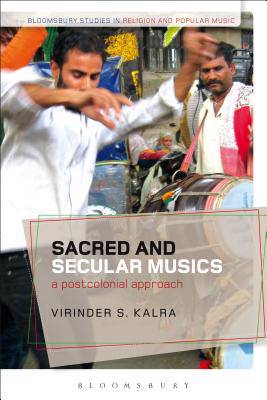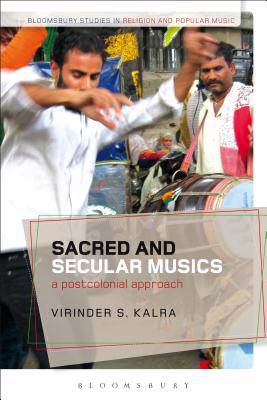
- Afhalen na 1 uur in een winkel met voorraad
- Gratis thuislevering in België vanaf € 30
- Ruim aanbod met 7 miljoen producten
- Afhalen na 1 uur in een winkel met voorraad
- Gratis thuislevering in België vanaf € 30
- Ruim aanbod met 7 miljoen producten
Zoeken
Omschrijving
How does the sacred/secular opposition explain itself in the context of musical production? This volume traces this binary as it frames Western Classical music and Indian Classical music in the 18th and 19th centuries, laying the ground for a contemporary exploration of what is ostensibly sacred music in South Asia. Offering a potent critique of musicological knowledge-making, Virinder S. Kalra explores examples of South Asian musics in various domains and traverses a new cartography of music in which the sacred and the secular overlap.
Drawing on examples which include Qawwali, kirtan and popular devotional genres, Sacred and Secular Musics offers new empirical material, as well as new insights into conceptualising religion and music, and the ways in which music performs sacredness and secularity across the contested India-Pakistan border in the region of Punjab. Through its deconstruction of the sacred/secular opposition, Sacred and Secular Musics explores the relationship of religion and music to wider questions of religion and politics. Its postcolonial approach brings Asia into the Western sacred/secular opposition, and provides a set of analytical tools - a language and range of theories - to allow further exploration of non-western religious music.Specificaties
Betrokkenen
- Auteur(s):
- Uitgeverij:
Inhoud
- Aantal bladzijden:
- 256
- Taal:
- Engels
- Reeks:
Eigenschappen
- Productcode (EAN):
- 9781474288859
- Verschijningsdatum:
- 19/05/2016
- Uitvoering:
- Paperback
- Formaat:
- Trade paperback (VS)
- Afmetingen:
- 156 mm x 234 mm
- Gewicht:
- 353 g

Alleen bij Standaard Boekhandel
+ 179 punten op je klantenkaart van Standaard Boekhandel
Beoordelingen
We publiceren alleen reviews die voldoen aan de voorwaarden voor reviews. Bekijk onze voorwaarden voor reviews.







